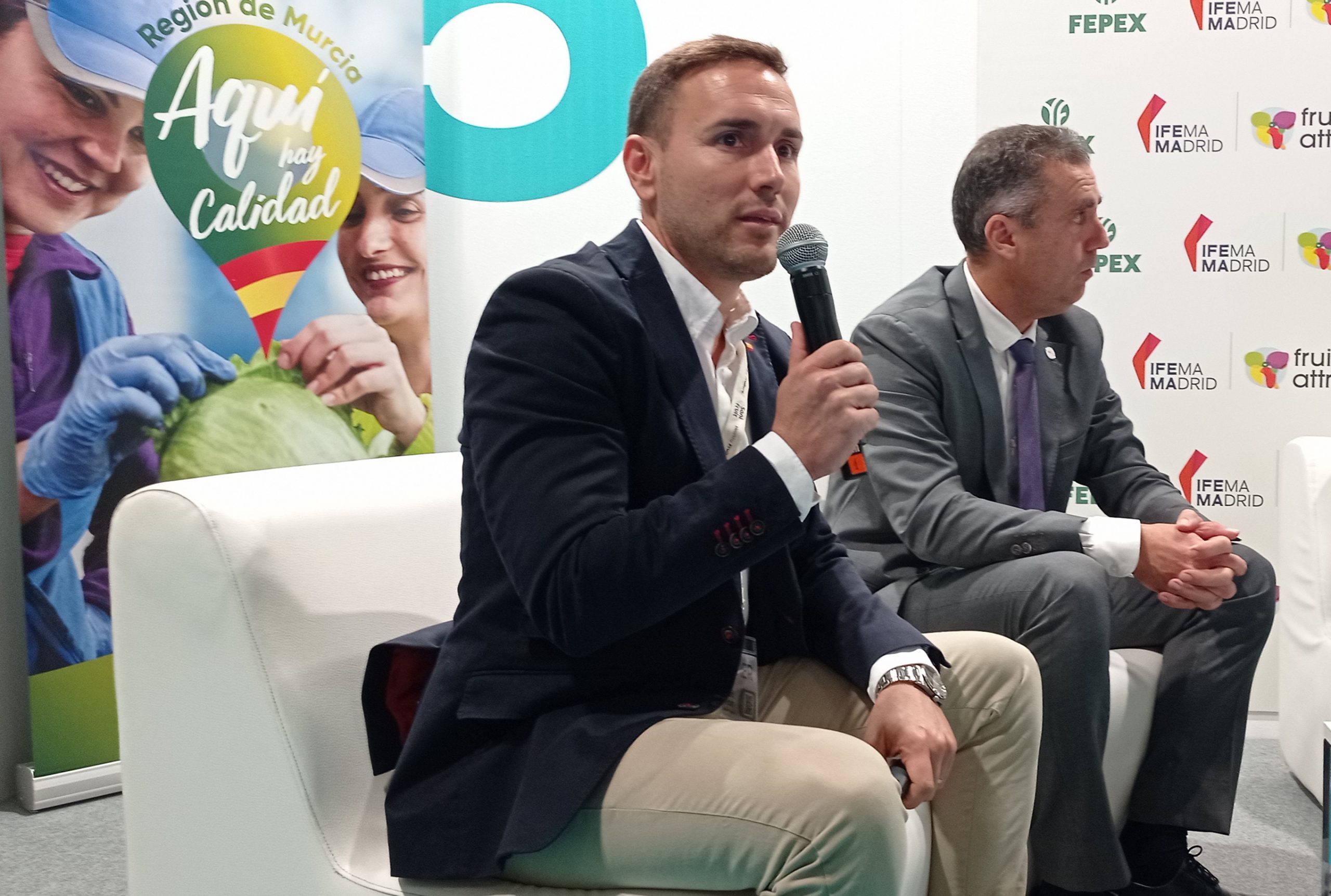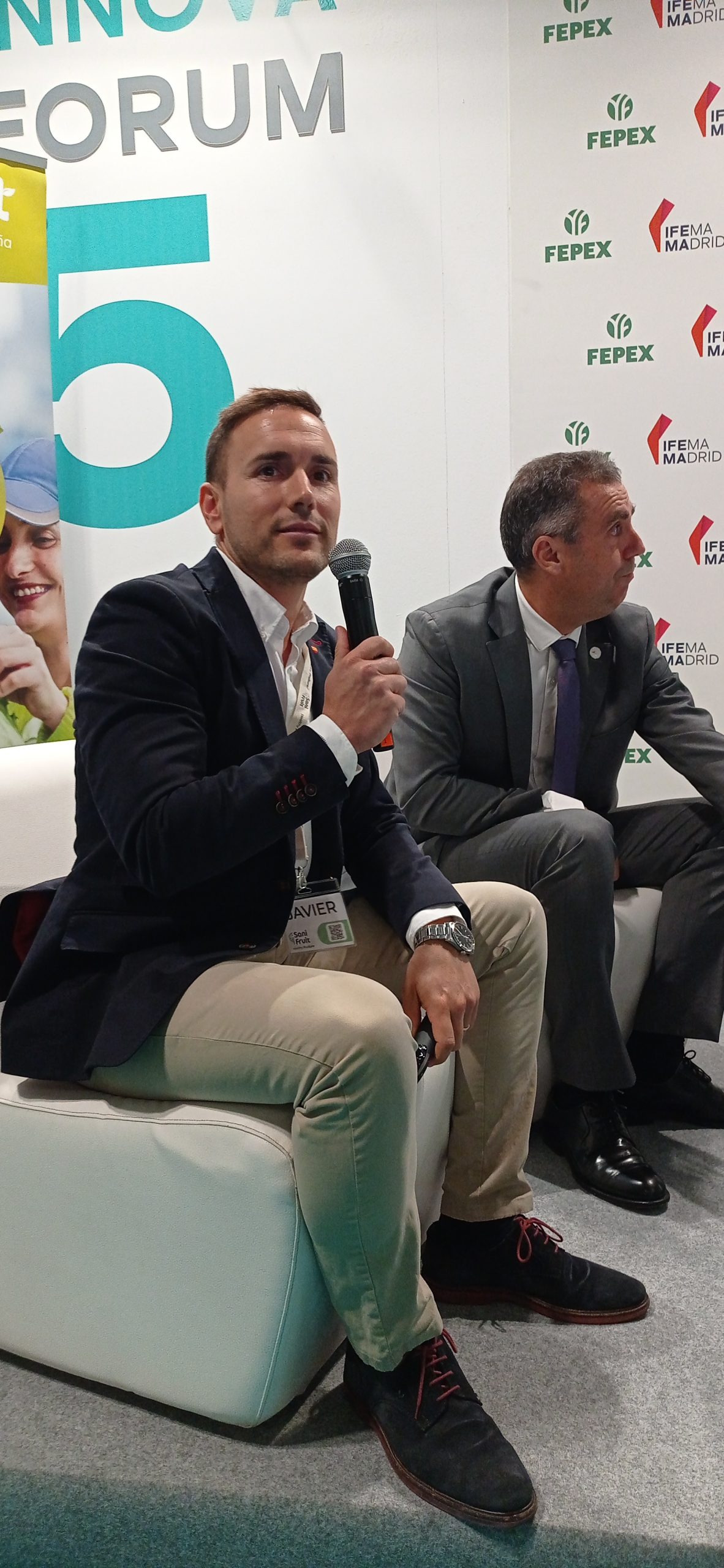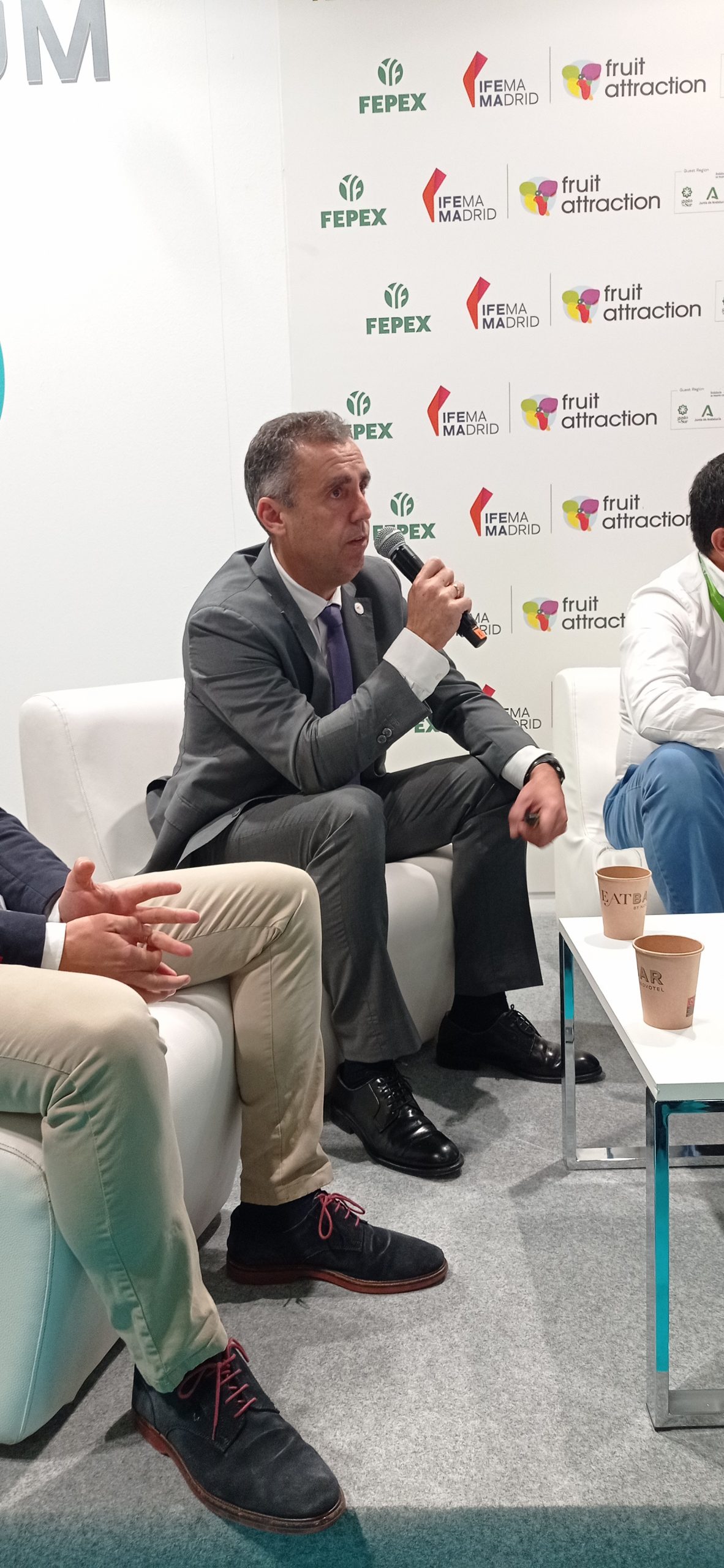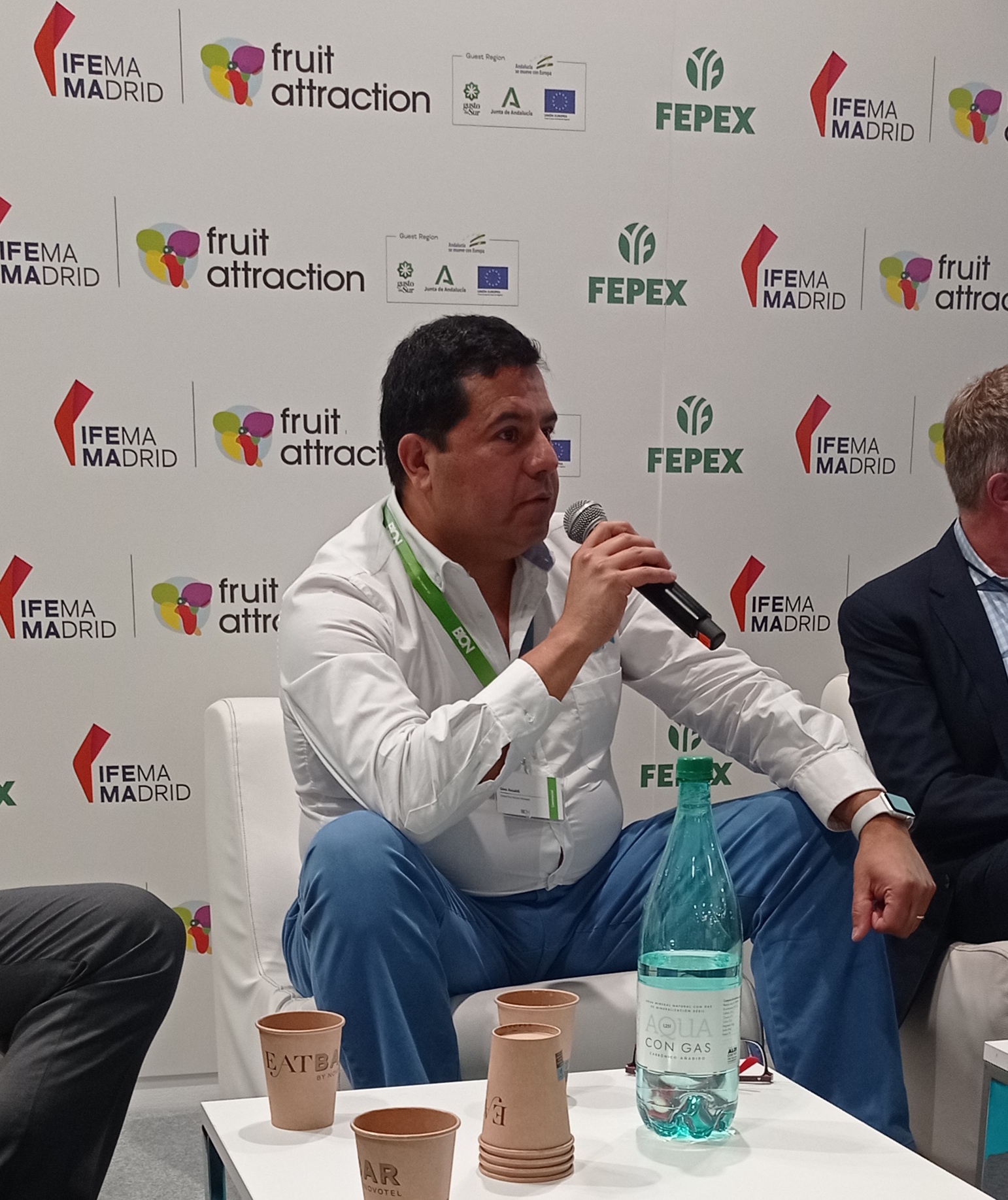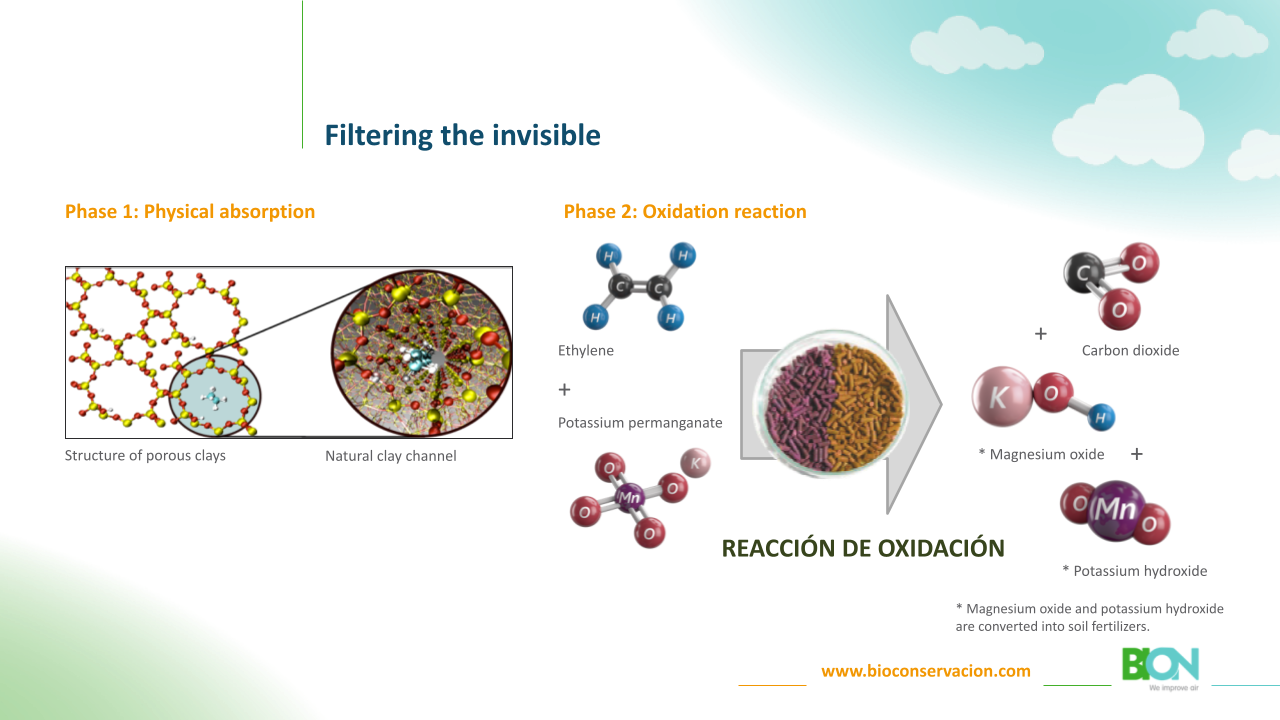BioFruit Congress hears from experts on post-harvest innovation
On October 6, the 2nd part of the congress kicked off with a presentation by Ecovalia international manager Evelyne Alcázar, who explained the Biofruitnet project, which is boosting innovation in organic fruit production by enhancing the sharing of knowledge and strengthening networks in Europe. Through Biofruitnet, easy-to-understand information on using organic pest control for citrus, pome and stone fruit has already been made available.
Next, FiBL international expert Salvador Garibay discussed how to protect Europe from the world’s worst citrus disease – HBL, also called citrus greening. FiBL’s holistic approach to fighting HLB and its vector (insect host) includes promoting integrated management and encouraging regenerative processes in organically managed orchards. HLB is likely to reach Europe, so FiBL is interested in collaborating with partners who promote organic management practices in European citrus regions, he said.
More info: https://citrus-greening.fibl.org/
The latest in post-harvest innovation
Winding up the congress was a debate on post-harvest innovation as the key to new market access and zero food waste featuring AgroFresh chief technology officer Duncan Aust, Bion commercial director Gino Ansaldi, Citrosol CEO Jorge Bretó and Sanifruit CEO Javier Biel.
Aust shared AgroFresh’s latest innovations for helping improve post-harvest across the supply chain, including its recently launched plant-based coatings VitaFresh Botanicals (with organic certification and vegan certifications) and FreshCloud, its digital platform, both to help extend fruit quality and reduce food loss and waste. AgroFresh chief technology officer Duncan Aust said:
“What happens in the field gives a lot of indications about what’s going to happen in the storage area.”
But there’s also a real need for data across the full spectrum, so FreshCloud integrates data from harvest to storage, packing and retail.
Extending shelf life, reducing waste
Bion’s post-harvest management, meanwhile, is helping reduce food waste by making it easy to monitor humidity, temperature and invisible gases, like ethylene, and volatile organic compounds (VOCs) that attract pests and pathogens, said Ansaldi. He also pointed out that rather than absorb ethylene, Bion uses a chemical reaction that eliminates it, with the residue apt for use as a soil fertiliser, thus promoting a circular economy.
Also helping reduce food waste are Citrosol’s plant-based coatings that extend the shelf life of fruit while avoiding use of plastic and are certified as both organic and suitable for vegan consumption, as Bretó explained. Citrosol’s PlantSeal coatings for apples, avocados, mangoes, citrus and other fruits mitigate losses due to ageing symptoms, help control weight loss, and reduce chilling injury during cold storage, quarantine and transport, he said.
Sanifruit’s Biel set out some of the biotech company’s natural, residue-free post-harvest solutions, such as the new Sani-AG spray which extends avocado shelf life by at least three days and also increases homogeneity in ripening, something that is valuable for exporters and growers. One of its latest advances is Sanipepper, a product for use on packing lines to extend the shelf life of peppers and that reduces the volume of non-marketable peppers at the retail level by 50-80%.


